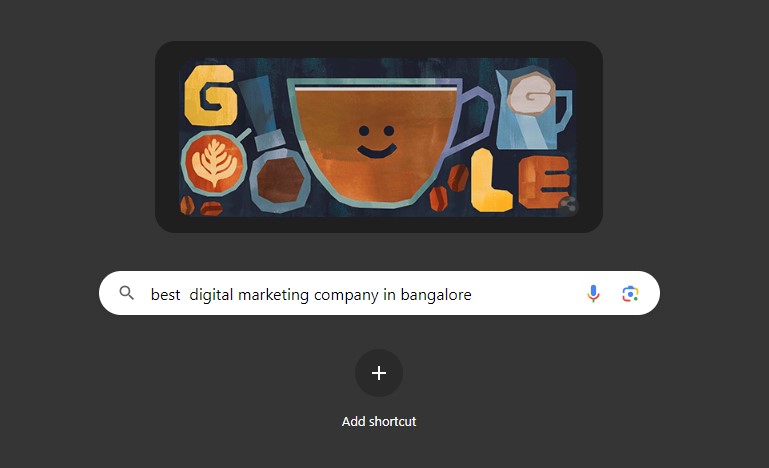“Keywords” Must know things for a blogger or a business brand to include in their websites. Keywords are the pillar of any website. By default, the first part that most of them have neglected to include in their websites. One must know the importance and strategic way of using the right keywords and how to conduct keyword research.
Google Search Engine consistently indexes the crawled data through the relevant keywords and content that are related to the keywords. Based on user search query it provides the most relevant results based on queries.

We often want our blog posts to be ranked on SERP’s. In this tough competition it’s difficult to rank in search engine results pages. Only knowing continuous smart and effective ways of utilizing the right keywords at the right place gets your page a better ranking in any search engine.
One must use the keywords in the SEO Process which is very important but then how do we select the specific term to target and get ranked on the SERP Page? Isn’t it?
But what do these keywords mean?
How does it change affect any website ranking?
How do you identify and take the right keywords?
Where to implement the right keywords?
If you are running up these questions, by the end of this blog post all your queries are answered.
What Do Keywords Mean?
Anything and everything a user types something in a search engine to get the relevant information is a keyword. Keywords can be words are phrases that people type in any search engine.
Why one must do keyword research?
Any brand a firm or a blogger must do keyword research because it helps to under the user’s point of view, also we can understand what a user wants to get out of the search engine. Keyword research is very essential factor in Search Engine Optimization.
Keyword research is a process of identifying and analyzing the user’s search things, in which he uses specific words to get information from search engines is called keyword research.
It’s the practice where one can choose the primary and secondary keywords in which the Meta tags and all other content are made which keeps keywords as a base.
By analyzing and doing keyword research, it helps in understanding various questions like
Users Queries or what people are looking for?
Number of people or users who are looking for it?
How do they want their results to be?
How hard will it be to rank for that user query?
Let us know the various types of keywords that we can use in any Digital Marketing Platforms
Types of keywords:
- Transactional keyword
- Informational keyword
- Commercial keyword
- Branded keyword
Transactional Keywords: These are the keywords used by the audience for a very generic purpose and having the strong intention of making any transaction like buying or selling. A user making an economic decision of making a purchase or selling. For better understanding, the image below explains very well.

Informational Keywords: It’s an audience looking for any relevant information, or details on a search engine results page. It deals with all kinds of questionaries’ like what, where, When, How types.

Commercial Keywords: These are most used by any audience since their search query requires the best results. It includes the user’s interest in getting related and top results that are more relevant to the user’s query. The search query starts by looking for the best, top, trending, etc.

Branded Keywords: This is also known as navigational keywords. Where a user is navigating directly to where he wants the particular information. In this, the user knows which place or which brand he wants to search for information about. He is clear with this search option. They use brand names while looking for any related information.

Keywords Based on Users’ Search Queries
Short tail keywords or Head Keywords:
These are also known as single-word keywords. Any search term results with short tail keywords with a huge number of results irrespective of related or unrelated results. The search volume and competition of this particular keyword are relatively very high.
For Ex: If a user is searching for Marketing he might get the information that he is looking for and also get what is not related. It gives all results about marketing like Digital marketing, traditional marketing, social media marketing, etc., if you insurance it gives all related information about different insurance. Where the intention of a user is not set.

Medium tail Keywords or Body Keywords:
These keywords contain 2-3-word phrases. These search terms contain decent search volume and the results of these search terms are slightly specific to the user’s queries. Also with less competition and keyword difficulty are medium
For Ex: If a user is searching for shoes for men it gives results based on that search term in the search results.
When a user searches about marketing automation it provides information with that user search terms itself. If a user searches for car insurance it gives all the information relevant to car insurance.

Long tail Keywords:
This includes more than 3 words. This kind of keyword has a strong and clear search intent for a user. The audience uses more specific phrases. These keywords are likely to have very low search volume and competition.
For Ex: If a user is searching to buy shoes under 3000 from Adidas, here his intention is very clear he wants to buy shoes under 3000 from the Adidas brand.
Search Volume is the number of times a particular keyword is entered into a search engine per month.

There are other sets of keywords that generally play a vital role in Google Ads. These keywords play a major part in getting low CPC improving the better results and also in getting good Return on Investment. Some of the best known Match type keywords used in Google Ads are:
- Broad Match Type: This match type shows all kinds of results irrespective of related and unrelated results of an audience search query. This match type is used for brand awareness and reaches the type of objectives, where your product or services should reach out to the better audience.
For Ex. If you are looking for a bat it gives all results irrespective of the meaning.
- Phrase Match Type: By using these keywords in ads, it shows ads to the audience when any one of the words they used in their search. Suppose they want to search for a black shirt. The ad might show a black T-shirt. And the ad may not show Black pants.
- Exact Match Type: Using these keywords helps in getting potential customers and increases in getting quality leads or sales. Ads are displayed to people who use the exact match of the keywords. The symbol is used as [your keywords].
Ex: Shoes for kids, Ads may show on kid’s shoes, Ads may not show kids’ sports shoes.

These are some brief points about different keywords. So make sure your keywords are related to what you are writing about.
Other types of keywords that need to be considered while making content are
- Singular and plural keywords
- Brainstorm keywords
- Related keywords or Latent Semantic Index Keywords.
When crawlers of search engines crawl websites or pages, they use Natural Language Processing. It looks for the content and the keyword. When your website is about digital marketing always use other synonyms and similar keywords. Only digital marketing as a keyword might not rank your web pages.
Any website or a blog site must include keywords that a user visits to look for the information to be ranked well in search results for that particular keyword One Must make sure there shouldn’t be any keyword stuffing throughout the content. Following these techniques results in lowering the current ranking position. This is due to the black hat techniques which are against the Google ranking guide.

To make your content look more unique and readable make sure the keywords are not used intentionally in it.
Primary Components of Keyword Research
Search Volume: The monthly search volume of keywords should be always high. The lower search volume doesn’t help in driving traffic to the website since no user is searching for any query related to the topic.
Competition: At the initial stage of building a website, it’s the best way to use low and medium-competition keywords. Once updating the content and improving on-page & off-page activities. Later can be competed for High competition keywords.
Relevancy: One must use keywords that are very much relative to content about their products or services. Using unrelated keywords and driving traffic increases the bounce rate which is not good for ranking your pages in search engine results page.
Keyword difficulty: It helps in understanding the difficulty of the keyword. Higher-difficulty keywords are very difficult to rank in search results. Use less difficult keywords to rank in search results.
Effective way of doing keyword research for SEO & SMM [Search Engine Optimization and Social Media Marketing]
Keyword research process:
- Generate Self Keyword / Brainstorm keywords.
- Find your competitor’s keyword and what they are ranking for
- Always prefer Google suggested and related keywords.
- Use the Keyword planner to get the volume search and competition of the keywords.
Download the Keyword Research Template
How to do effective keyword research
Step 1: Understand your customers and their goals (key to success in content strategy). Create your buyer persona with SEO in mind (what are your target customers searching for online? What words and phrases do they use?)
Step 2: Decide which topics you want to be known for. What topics do people search for that are related to your business?
Step 3: Find out what terms people are searching for online. Start at the topic level, then zoom in.
Step 4: Note search volume and competition. Using your keyword research tool of choice, take note of the monthly search volume, and competition for each keyword you’ve chosen to target.
Step 5: Organize your keywords into topic clusters. Topic clusters are a method of structuring your content for both users and search engines.
Step 6: Prioritize which keywords or topic cluster you’re going to focus on First. This is going to depend on your goals and the search intent of your chosen keywords.
Primary Keywords or prominence keywords: Which is having more importance or which brings value to our website?
Secondary keyword or proximity keywords: Ccontains multiple keywords in a single keyword and also its second most important keyword, preferably considered as LSI keywords (Latent Semantic Index)
Keyword Research Tools
Google keyword planner, Moz keyword explorer, Answer the Public, Ubersuggest, SEMrush, and Keywords everywhere.
Chrome extensions: keywords everywhere, keyword surfer, and ubersuggest.
Check for trending keywords
Use Google Trends to see whether the search volume for your chosen keyword is going up or down
What is the buyer’s journey?
In the active research-process, someone guesses through leading up to a purpose.
- Buyers Journey:
- Awareness
- Interest
- Desire / Consideration
- Conversion
Great content on digital marketing based on search volume and competition.
If your content starts ranking high for this keyword, it will get more traffic to your webpage.
Importance of keywords in SEO?
One must do effective keyword research and utilize the right keywords on web pages. Some of the important keywords in SEO are
It helps us what users are looking for. If you are clear with what are the queries that people are looking for, creating content and targeting the right keywords will drive traffic to web pages.
Improving the Click-through Rate of websites. Effective keyword utilization drives good traffic to websites which indirectly increases the Click-through rate which helps in making Google understand the importance of that particular website.
It helps ranking a webpage or a blog on a search engine results page. The better ranking of web pages drives more traffic to the site and improves the trustworthiness of a webpage. People tend to click the webpages which rank at the top of search results.
Why do keywords play a major role in SEO? And where to implement it?
Keyword plays a vital role in SEO, It’s also important to use the right keywords in the right place without using black hat techniques. Going against Google guidelines results in penalizing the website. Google provides accurate and relevant results based on search queries. Using the right keywords in, on-page, and Off-page techniques of SEO and improving the keywords helps increase the Authority of websites. Targeting the right keywords helps in driving the traffic to the website.
Where to implement the Keywords?
In the On-Page factors, one must implement the right keywords obtained by keyword research. Doing the correct method of keyword research helps in relevant keywords for the brand and business.
- Meta Title: any website identified the purpose based on their website Meta title. Using the keywords in the Meta title helps in ranking on the SERP page.
- Meta Description: Using similar keywords or related or synonym keywords in the Meta description helps in describing the overall purpose of the webpage.
- URL: Keywords should be used in slug/path / or URL to improve SEO ranking.
- Headers Tags: Header 1 [H1] must include the keyword. Using related keywords in H2, and H3 also improves SEO
- Content: Using keywords in content should be done naturally. Over-optimizing the keywords is a bad signal for ranking factors. Keyword stuffing should not be entertained in content. Keywords must appear naturally in the content.
- Image Alt Text: using the keywords in image alt tags also drives traffic from image search results. Around 20% of the traffic is directed from image search results. Hence using in image alt text is beneficial for the website.
- One must always have a track of how keywords are performing and getting traffic to the website. One must not change the keywords often to check, instead improvising the keywords helps in better ranking. Doing more qualitative off-page activities writing blogs on trending keywords, and guest posting can improve the domain authority of a website.
Conclusion:
We have seen how keywords are important in ranking websites. So far we have seen what keywords mean, keyword research, the importance of keyword research in SEO, different types of keywords based on match types, and keyword types used in Google ads. Essential Components of keyword research, the process of doing effective keyword research, some important tools to do keyword research, and also effective ways of implementation of keywords in on-page and off-page activities.
The information provided through this article answers most queries. Bookmark this website for more interesting content on trending topics. You can also find my best articles in the blog section. Read how to drive traffic to a website through social media.
FAQ